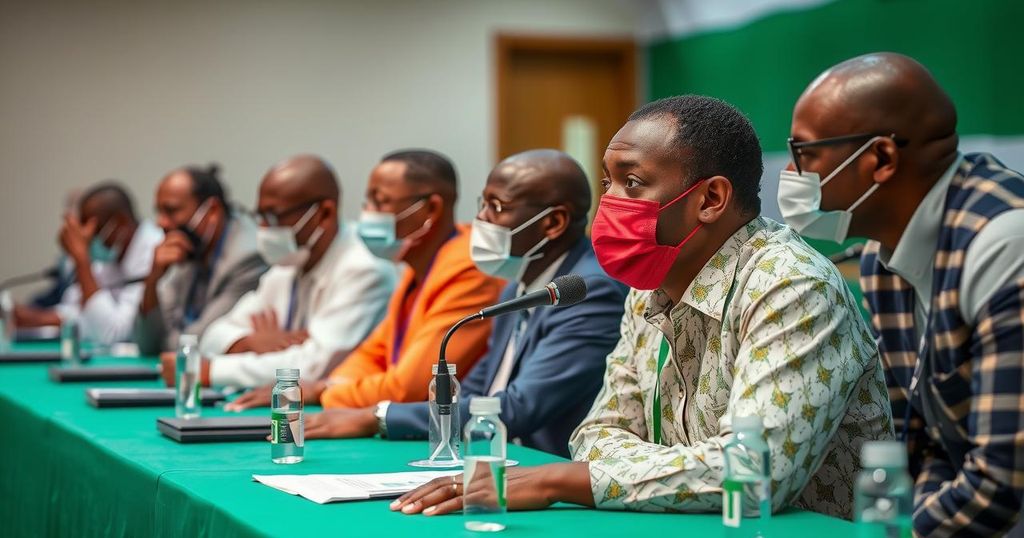Nigeria to Host Regional Meeting for Lassa Fever Vaccine Development
Nigeria is set to host a regional meeting on Lassa fever vaccine development on January 15, 2024, as announced by Professor Muhammad Pate, the Coordinating Minister of Health and Social Welfare. This initiative aims to tackle the public health risks of Lassa fever, which has led to numerous cases and fatalities within the country. Emphasizing multi-sectoral collaboration, Professor Pate highlighted that improved health outcomes depend on cooperative efforts across various governmental and community levels.
On January 15, Nigeria will host a significant regional meeting focused on the development of a vaccine for Lassa fever, a viral hemorrhagic fever endemic in the country. Coordinating Minister of Health and Social Welfare, Professor Muhammad Pate, announced this initiative during an interview on Channels Television. He emphasized Nigeria’s leadership within the West African sub-region in undertaking collaborative studies aimed at introducing an effective vaccine to combat the disease, which poses a critical public health threat.
Lassa fever remains a pressing concern, with Nigeria witnessing 9,685 suspected cases, 1,187 confirmed cases, and 191 fatalities reported as of week 52 of 2024. The Nigeria Centre for Disease Control and Prevention has responded by activating the Lassa Fever Emergency Operations Centre to manage the outbreak effectively. The minister underscored the vital roles of multiple government levels and sectors in public health, highlighting that improved outcomes rely on collaborative frameworks and accountability measures. He stated, “What we’re building is coherence, collaboration, and cooperation between different levels of government.”
Addressing the complexities surrounding health care, Professor Pate noted that educational advancements are crucial in reducing maternal mortality rates and ensuring proper healthcare access. He recognized the interdependencies among various governmental ministries in health-related initiatives, stressing that a multi-sectoral approach encompassing education, water resources, and sanitation is necessary for effective management of public health issues like cholera outbreaks.
Additionally, the minister acknowledged that insecurity affects vaccination efforts and called for a concerted effort from defense and military services to overcome these challenges. He reiterated the vision of a health system dedicated to serving the populace effectively, stressing the need for a comprehensive service delivery that includes nutrition, sanitation, and health education. The minister advocated for enhanced financial protections for vulnerable populations experiencing catastrophic health expenses, framing health access as critical to mitigating poverty.
In conclusion, the minister articulated a vision for a cohesive health system that interconnects with social welfare initiatives to comprehensively uplift the well-being of Nigerians. He encouraged continual efforts across sectors to improve health outcomes, ultimately enhancing the overall welfare and protecting individuals from the adverse effects of illness and poverty.
Lassa fever is a viral hemorrhagic disease caused by the Lassa virus, primarily spread through rodents, specifically the multimammate rat, which serves as its natural reservoir. It has a significant impact on public health in Nigeria, where it is endemic. The government’s focus on vaccine development and multi-sector collaboration reflects a broader strategy to enhance public health infrastructure and tackle disease outbreaks. The recent activation of the Lassa Fever Emergency Operations Centre indicates an urgent response to rising cases and the need for coordinated health interventions. This meeting on vaccine development is seen as an essential step to mitigate the effects of Lassa fever in the West African region.
The upcoming regional summit on Lassa fever vaccine development signifies Nigeria’s commitment to addressing the public health crisis posed by this disease. Through intergovernmental collaboration and comprehensive health initiatives led by Professor Muhammad Pate, the government aims to improve health outcomes significantly. The importance of educational advancements, a multi-sectoral approach, and financial protection for health-related challenges were emphasized as essential parts of a broader strategy to enhance overall welfare in Nigeria.
Original Source: punchng.com




Post Comment